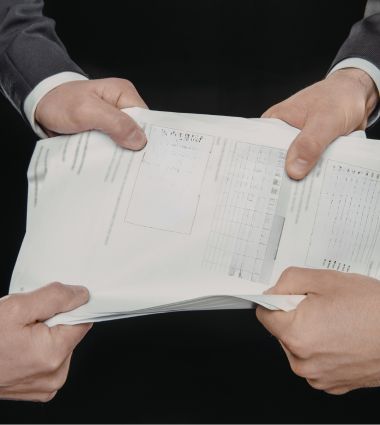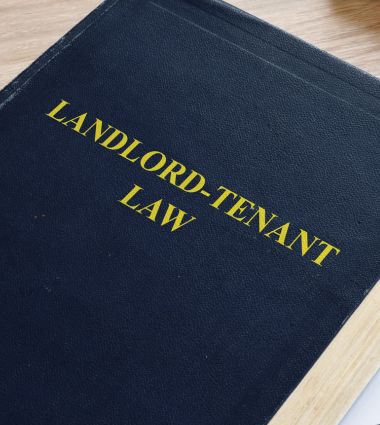What are the Different Types of Title Transfer in Ontario?
Title transfers are a necessary legal step in any real estate deal. Whether you're buying a new home or inheriting property, different situations require a title transfer in Ontario.
In Ontario, the law says that only licensed real estate lawyers can handle the paperwork for title transfers. When buying or selling property, it's important to get help from a good real estate lawyer.
In this article, you will learn about the main methods of title transfer in Ontario and what you need to know when transferring ownership of your home or land. Knowing the title transfer process ahead of time will prepare you to take the right steps when the time comes to finalize the sale of your property.
Understanding Title Transfers in Ontario
In Ontario, title transfers refer to the legal process of transferring ownership or interest in a property from one party to another.
What is Title Transfer?
In Ontario, a title transfer is the official procedure of transferring property ownership from one individual to another. This procedure holds significance in real estate deals, whether purchasing a new house, selling land or transferring ownership via inheritance or as a present.
It is important to comprehend the process of title transfers to ensure that the shift in ownership is legally acknowledged and problem-free.
Legal Requirements:
Licensed Real Estate Lawyers: Ontario law requires that only licensed real estate lawyers can manage the title transfer process. They ensure that all legal documents are correctly prepared and filed.
Land Registration System: Ontario uses the Land Titles System, where the transfer of title must be registered with the Land Registry Office to be legally binding. This system helps maintain an accurate record of property ownership and any associated interests or liens.
There are several ways ownership of property can be transferred in Ontario. But in all cases, the involvement of a licensed real estate lawyer is required to conduct title transfers and help understand the legal requirements properly. With the right guidance, title transfer in Ontario can be conducted efficiently while protecting the interests of all parties involved.
Types of Title Transfers
.jpg)
Title transfers may occur for various reasons, each necessitating a specific legal process. The main types include transfers due to property sales, inheritance, gifts, and divorce settlements.
Transfer Between Spouses
The first and most frequent type of title transfer in the province of Ontario is one that occurs between spouses, through marriage, separation, or divorce. When a couple is married, they change the title deed and include the name of the spouse.
In most cases, when a couple decides to separate or divorce, one of the spouses conveys his/her share of the title to the other. Depending on the situation, this is done through a Quit Claim or Warranty deed.
Transfer Between Trustee and Beneficiary
Another frequent title transfer is between a trustee and a beneficiary. When property is held in a trust, the legal title is vested in the trustee while the equitable title is in the beneficiary.
When the terms of the trust have been completed, the trustee can convey the legal ownership of the asset to the beneficiary. This is often done for estate planning needs.
Gifting
You may choose to gift your property to another individual during your lifetime. This permanent transfer of ownership is completed through a deed of gift. The gifting of property may have tax implications, so you should consult with professionals before proceeding.
Transfer of Inherited Property
When a property owner dies, their assets, such as real estate, are usually passed on to their beneficiaries or heirs. The recipients must present proof of their legal right to be the rightful heirs of the property.
They will proceed to collaborate with a lawyer in order to change the title to their names. This procedure guarantees that the recipients have complete legal possession and entitlements to the inherited asset.
Sale of Property
Naturally, the most famous form of title transfer is when a seller sells the property to a buyer. After signing a real estate purchase agreement, the parties will move forward to finalize the transaction.
Legal ownership of the property is transferred from the seller to the buyer at the time of closing. The purchaser then takes ownership of the property as the official owner.
There are many types of title transfer in Ontario through which property can be transferred. Understanding the different types of title transfers and the processes involved will help ensure they are done properly according to the law.
Documents Required For The Property Title Transfer
To transfer the title of a property in Ontario, certain documentation must be provided for a smooth transfer of ownership.
Proof of Ownership
Documentation must be provided by the current property owner to prove their legal ownership of the property. This normally consists of the initial property deed or land title paperwork. The document should include the legal property description and the complete name of the owner.
If the property was bought in the past 20-30 years, the owner may need to give a copy of the purchase agreement or closing documents from the time of purchase.
Property Tax Receipt
A receipt showing that all property taxes have been paid in full for the current tax year must be provided. Any property tax arrears must be paid before the title can be transferred to a new owner. The local municipality can provide an up-to-date tax receipt upon request.
Bank Confirmation
If the property currently has a mortgage, confirmation from the lender is needed stating the mortgage will be cleared at closing. Before completing the purchase, the new owner must verify that the property is free of any liens or mortgages.
Transfer of Land Forms
The necessary forms to register a change in property ownership must be completed. These include a Transfer of Land form as well as additional forms for first-time homebuyers, corporations, or other ownership structures. The forms must be submitted to the province’s land registry office to officially record the transfer of title.
By providing these key documents, the current property owner and the new buyer can ensure all legal requirements are met to successfully transfer the title for a property in Ontario. Consulting with a real estate lawyer can also help navigate the documentation process and transfer of property ownership.
Step-by-Step Process of Title Transfer in Ontario

The process of title transfer in Ontario requires the legal transfer of ownership of real property from a seller to a buyer. This is completed by real estate lawyers to ensure the change of ownership is properly documented. The typical title transfer process takes 5 to 10 business days to complete.
Step 1: Sign an Agreement of Purchase and Sale
Once an offer has been accepted by the seller, the buyer and seller will sign an Agreement of Purchase and Sale. This legally binding document outlines the terms and conditions of the property sale, including the closing date.
Step 2: Conduct a title search
The lawyer for the purchaser will perform a title search to verify that the seller possesses a clean title to the property and there are no liens. This guarantees that the property can be legally transferred to the purchaser. All problems need to be resolved before the deadline.
Step 3: Sign closing documents
On the closing date, the buyer and seller meet with their lawyers to sign closing documents, including the Transfer/Deed of Land. This document legally transfers ownership of the property to the buyer. Other documents may include a Trust Statement or Charge/Mortgage of Land if financing is involved.
Step 4: Disburse funds and register title
The buyer’s lawyer will provide the funds for the purchase to the seller’s lawyer. The title is then registered to record the transfer and the new ownership is updated on the title. Funds are then disbursed to the seller, real estate agents, and any other parties owed money as part of the transaction.
Step 5: Post-closing details
After closing, the lawyers will provide reporting letters to the buyer and seller confirming the details of the transaction. Property tax and utility bills will be adjusted between the two parties. The buyer should change locks, insurance, and any pre-authorized bill payments. The title transfer process in Ontario ensures an accurate legal transfer of real property ownership between the seller and buyer.
Following these key steps with the assistance of real estate lawyers will guarantee a smooth title transfer process for the purchase or sale of property in Ontario. Understanding the responsibilities of each party and the documentation required can help avoid delays and ensure all legal obligations are fulfilled.
There are several ways to transfer property ownership in Ontario. While a simple transfer between family members can be straightforward, other options like transferring to a corporation or trust require professional help.
Carefully consider your goals before selecting a transfer method. Consult qualified advisors like lawyers to ensure your transfer is properly structured and documented. Taking the time to understand the process will lead to a smooth transition that meets your needs when transferring real estate in Ontario.
Real Estate
Family Law
Wills & Estates
Immigration
Join Our Mailing List.
Sign up with your email to receive our newsletter and stay informed about the latest legal developments and special offers.



















































































